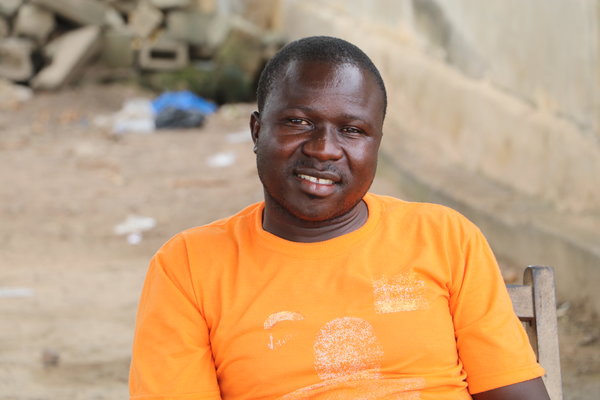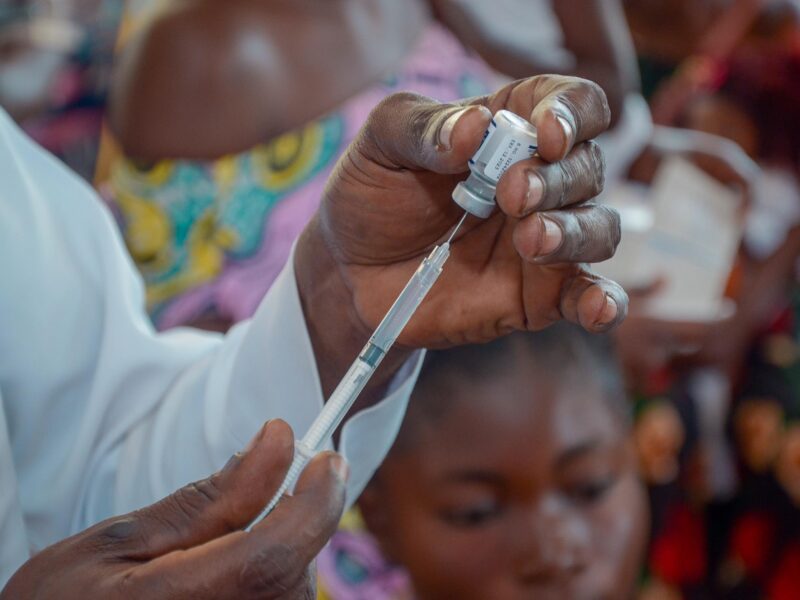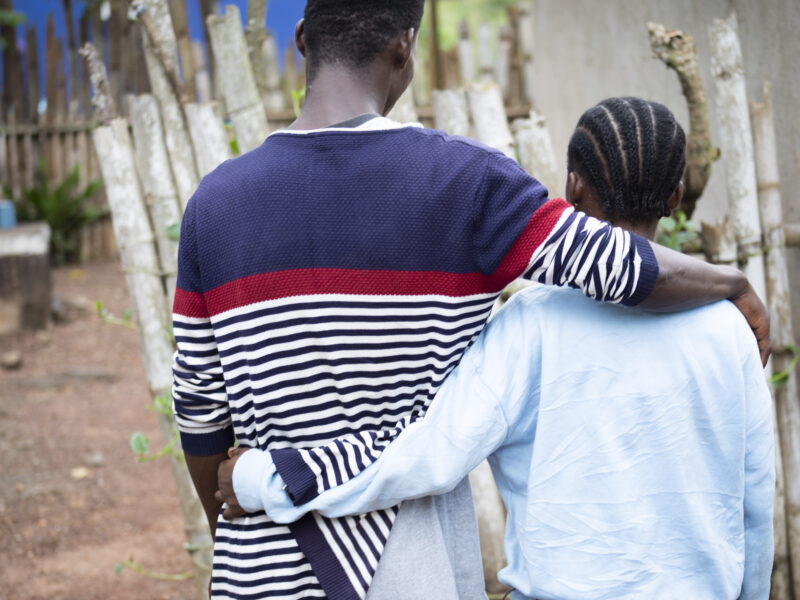A program in Côte d’Ivoire originally devoted to encouraging men to be tested for HIV successfully pivoted to include support for men who test positive and ushering them through to initiate treatment, new Johns Hopkins Center for Communication Programs-led research suggests.
The program, known as Brothers for Life, is a support group for men that has long focused on HIV education, prevention and the importance of knowing one’s HIV status in order to stem the spread of the virus.
Two years ago, after research suggesting men avoid HIV testing because they fear the effect an HIV-positive diagnosis would have on their work, family, sexuality, health and social status, Brothers for Life added modules on living a fulfilled life with HIV and the importance of initiating and staying on treatment after a positive diagnosis. The new study, published online in the Journal of Acquired Immune Deficiency Syndrome (JAIDS), finds that Brothers for Life participants who tested positive for HIV began immediate treatment and remained on treatment for at least six months.
“Men in Côte d’Ivoire have long thought of HIV as a death sentence so we thought let’s flip the fear on its head and focus on the positives: That there is a medication that can save your life and it is free. That you can still have healthy children, keep working, improve your health and maintain your social status when your HIV is under control with medication,” says CCP’s Danielle Naugle, PhD, the lead author of the new study.
The changes to the Brothers for Life program, which brings together small groups of men for 10 hours’ worth of group sessions, are the result of the earlier research from Naugle and her team.
Historically, men in sub-Saharan Africa have been less likely to test for HIV, initiate antiretroviral therapy (ART) and remain engaged in care than women. Failure to test for HIV and engage in care leads to increased morbidity and mortality for individuals living with HIV and undermines ART’s promise for preserving health and preventing further HIV transmission.
In Côte d’Ivoire, the national HIV prevalence among adult men aged 15 to 64 is a relatively low 1.7 percent, but in 2017– 2018, only 24.2 percent of HIV positive Ivorian men knew their HIV status.
Between April 2017 and January 2018, 7,410 men participated in a total of 336 Brothers for Life groups in three regions of Côte d’Ivoire. Of those, 97 percent agreed to participate in the evaluation. Of the 5,835 men who were tested for HIV as part of Brothers for Life, 2.3 percent (135) tested positive.
The researchers found that 97 percent of those testing positive were linked to care within four days and 100 percent of those who linked to care remained in care six months later.
The men were offered the chance to be paired with peer navigators, people who could literally walk them through the healthcare system to make sure they were seen by providers, took their medicine daily and attended follow-up appointments. The first weeks on ART can be challenging and peer navigators were part of the journey every step of the way, helping the newly diagnosed men to understand that, with time, taking daily medication can fit into their normal lives thereby enabling them to experience its benefits.
One man in the study told researchers that having a peer navigator show him the ropes at the health center after his diagnosis made all the difference. “I haven’t thought about it since, because it was the brother there that called me,” he told them. “So, when [the peer navigator] called, we went together, you see. He went and entrusted me to a woman there and, that’s it, I follow the treatment.”
Said another: “We told ourselves what? Once you have HIV, it is finished for you. … But, with the Brothers for Life program that we did there, it showed us that you can have HIV and go about your activities if you follow your treatment.”
Naugle says she is pleased with how the new and improved Brothers for Life is working.
“It’s not only prevention but it reduces stigma because participants expressed more compassionate attitudes toward people living with HIV,” she says. “It makes people think, ‘I could have HIV. You could have HIV. Everyone needs support.’
“Men in Côte d’Ivoire have been difficult to reach. This is a time-intensive process but it’s making a difference.”
“Addressing Uptake of HIV Testing and Linkage to Care Among Men in Côte d’Ivoire: An Evaluation of the Brothers for Life Program Implementation” was written by Danielle A. Naugle, PhD; Abdul Dosso, MS; Natalie J. Tibbels, MSPH; Lynn M. Van Lith, MPA; Zoé M. Hendrickson, PhD; Anne M. Kouadio, PhD; Walter Kra, PhD; Diarra Kamara, MPH; Patricia Dailly-Ajavon, MS; Adama Cissé, BS; Kim Seifert-Ahanda, MPH; Sereen Thaddeus, MA, MPH; Elizabeth C. Mallalieu, MPH; Michelle R. Kaufman, PhD, and Christopher J. Hoffmann, MD, MPH.




